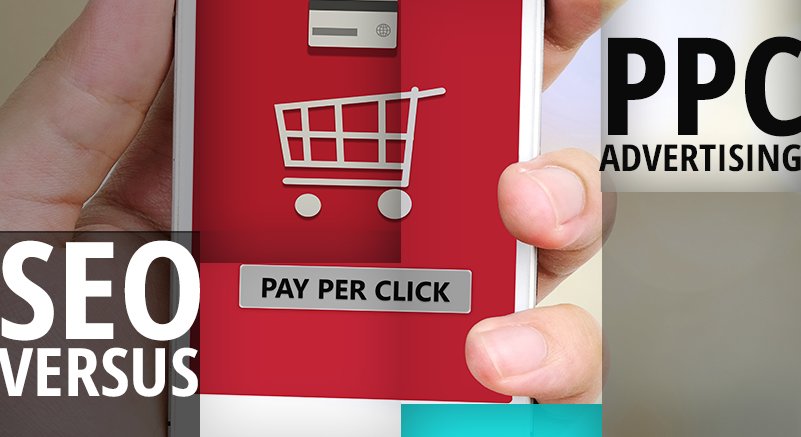There is a lot to know about the subject of SEO and PPC advertising.
First of all, they are two totally different services but they can be used together to produce effective marketing campaigns for your business. Here’s a basic overview:
SEO (or Search Engine Optimization) services
SEO services concentrate on researching out what people are searching for online and then ensuring that your website contains the most relevant information on that subject.
The goal would be to have more relevant content than other sites on the subject resulting in your website showing up first on the list of search results for that query, or at least on the first page to start with.
If you figure that the average number of search results that come up when you search for something online can vary between tens of thousands into the millions and even billions, then think about the fact that these results have to be displayed in some sort of order, you begin to see the importance of being the most relevant answer to a query.
A recent study done on how much difference it makes where you show up on the search results paints a pretty staggering picture:
- The results that show up on the first page of the search results typically get 92% of the traffic. Only 8% of searchers go beyond the first page and click on any results.
- The organic search result (non-paid) that shows up first gets 32.5% of the search traffic.
- Second place gets 17.6%
- Third place gets 11.4%
- And so on and so on….
The exact mechanics of how sites get ranked is usually a closely guarded secret, (so people don’t try and cheat the system) but some basic principles hold true:
- Get rid of coding errors in your website. These make it harder to use your site, so they usually bump you down in the rankings.
- Ensure your site is built to be mobile-friendly. Same reasoning as point number 1.
- There are certain terms which get searched for more than others. There are also terms that are more competitive than others (more people trying to show up for them). Make sure you do your research so you know exactly what you are trying to show up for.
- Ensure that the content on your site is written to be very relevant to the types of searches you determined you are trying to show up for.
- Continually create more relevant content on this subject and add it to your site (usually through a blog).
- Work to get other reputable sites to link to your content. This makes it seem more relevant.
You then review the data on how many people come to your site, where they come from, what searches they are using to find you and make continual adjustments to your content to ensure you stay very relevant for them.
PPC, or Pay-Per-Click advertising
PPC is the subject of creating ads that target specific types of searches with the goal of getting leads and sales.
In PPC the emphasis is on finding out the exact amount you need to pay for the exact search terms that will result in you getting more leads and sales. This means a lot of research and testing as well as working to make your ad represent the most relevant answer to the query.
You set the exact searches you want the ad to show up for, you can even specify certain searches you don’t want the ad to show up for (like “free service”). If you succeed, when someone searches that term your ad will show up on the page in the advertising section of the search results.
Now, don’t get me wrong, you still have to be relevant, but the payments you commit to making every time someone clicks on your ad (hence pay-per-click) play a dominant factor in determining whether or not your ad shows up when someone searches a particular term. This allows you to have your website display even if you don’t show up organically on the first page of the search results.
The basic theory behind PPC is to test out different ads, different visual layouts, different messages and different offerings to get the best results.
You can see whether or not people are clicking on the ads or not and get instant feedback about what people are responding to. (You can also use this data to modify your SEO campaign as well to make sure that your content is precisely what people are looking for and clicking on.)
You can test different days and different times. You may find that an ad run on Mon doesn’t get a lot of clicks but if you run the same ad on Fri it might get loads of clicks.
Once you know which ads and times are more effective, your goal should be to see how much you have to spend to get a lead or a sale. Once you know this you will then be able to predict the results of your marketing budget.
If you know that every $100 you spend gets you a $10,000 client, then it becomes a simple math equation to figure out how much you want to spend on your ads to bring in new business.
<pAs people don’t stay the same, you will have to continually monitor the results and activity to make sure you are always getting your leads and sales for the least amount of money per sale, but if you review the data often, you will have a fairly predictable set of results coming from your ads.
SEO is a long-term strategy to get to the top of the search results for as many search terms as you can and to stay there. PPC is more of a short-term action to instantly get feedback on what people click on and interact with and to drive immediate leads to your site.
To put together a marketing campaign you would review your budget, how soon you needed results and then layout a strategy that would utilize SEO and PPC tactics over time to get more and more people to find your website and ultimately contact you or buy from your site.
There are a lot of other factors such as how to use social media in your SEO and PPC efforts, the importance of good video content to your sales process and many more. But these are the basics.
So there you go! Questions, comments? Let me know in the section below.
</p

